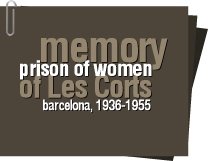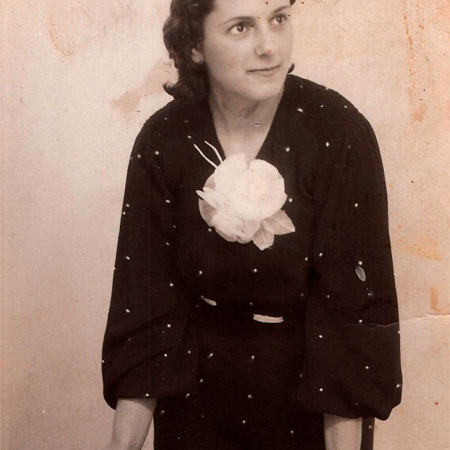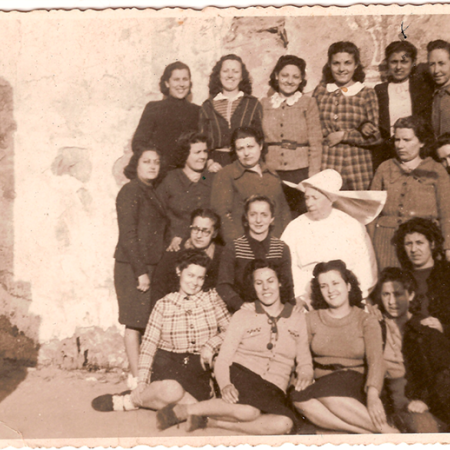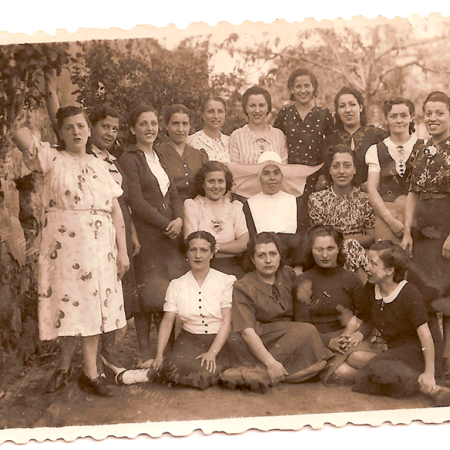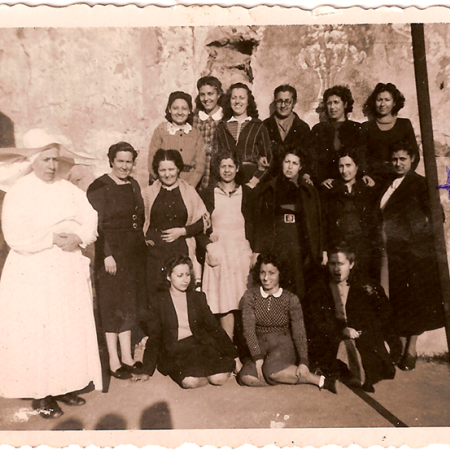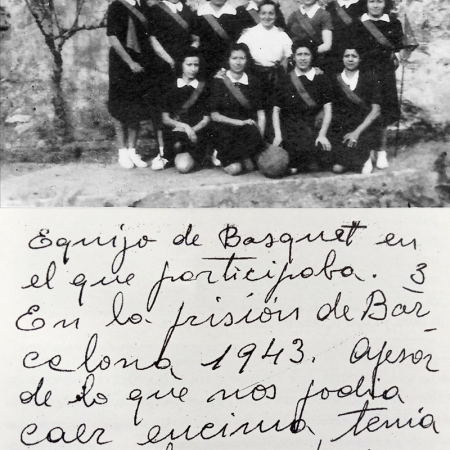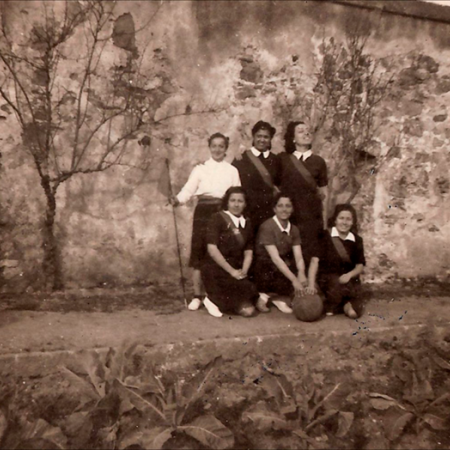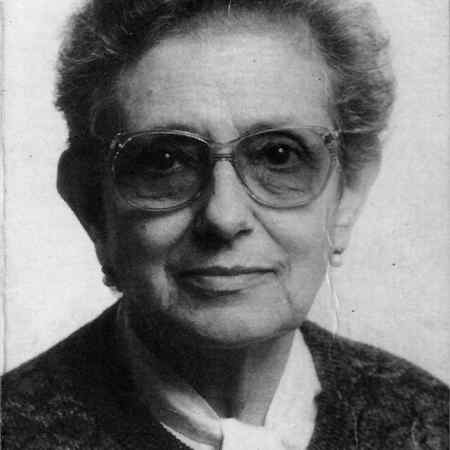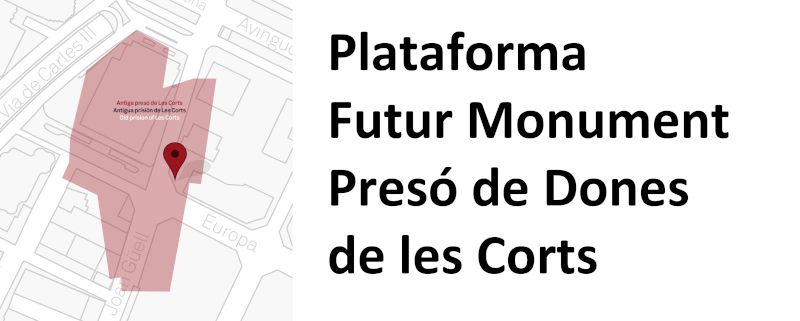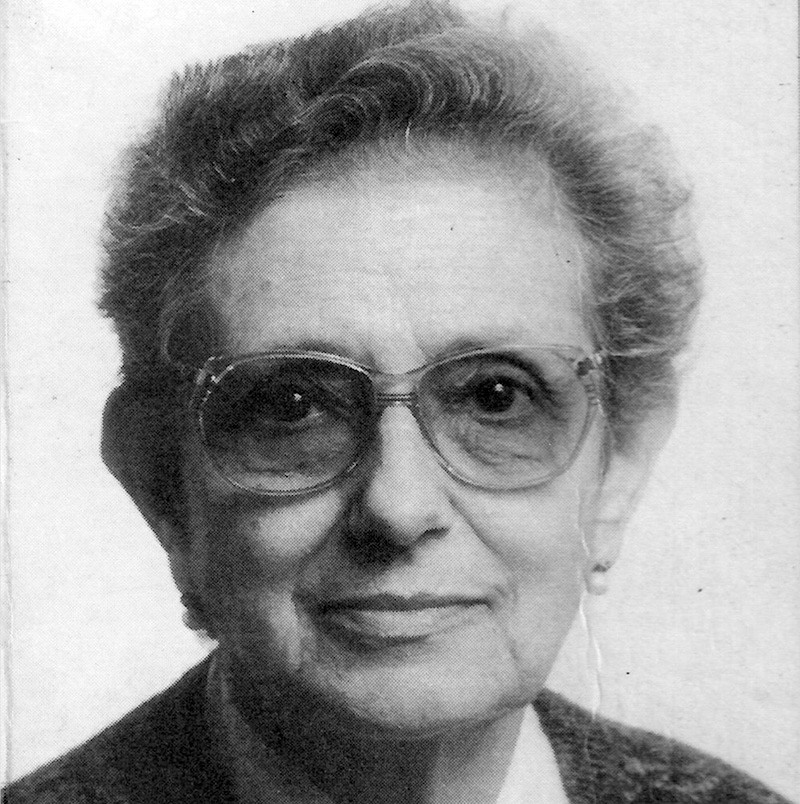
Soledad Real López
Soledad Real was twenty-four when she entered Les Corts prison, alongside seven other comrades: sisters Cinta and Dolors Brugalada, Isabel Imbert, María Antonia Madueño, Julia Chantrero, Clara Pueyo, and Leonor Zalabardo. She remained there until the summer of 1943, when she was transferred to the central prison of Ventas in Madrid.
In 1944, she was tried and sentenced to thirty years in prison, of which she served sixteen. In addition to Les Corts and Ventas, she also experienced the prisons of Torrero (Zaragoza), Málaga, Segovia, and Alcalá de Henares, from which she was released in 1957, exiled with the express prohibition of returning to Barcelona and its province.
Sole rebuilt her life in the Lucero neighbourhood of Madrid, together with her husband, Francisco Rebato, who had also endured a long prison sentence. She played an active role in the neighbourhood and community movements, especially in the Lucero Women’s Association.
In 1999, Sole ran as a candidate for the European Parliament for the Feminist Party. She spent the last years of her life in her hometown of Barcelona, where she passed away on the morning of 6 February 2007.
That same year, the band LABOCA composed a series of hip-hop tracks based on the testimonies of women imprisoned at Les Corts, including Sole’s (Les Corts. 1941), working with chords from the most popular songs and ballads of the two eras, such as Tatuaje.
In 2009, the Pere Ardiaca Foundation of the Communist Party of Catalonia honoured her memory with a collective book and a documentary, available online: Las Ventanas de Soledad Real.

